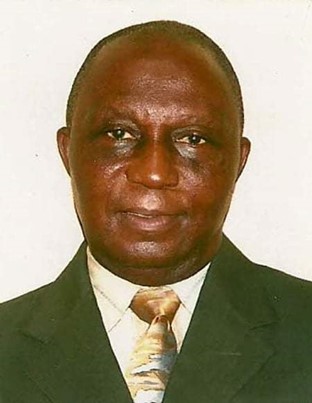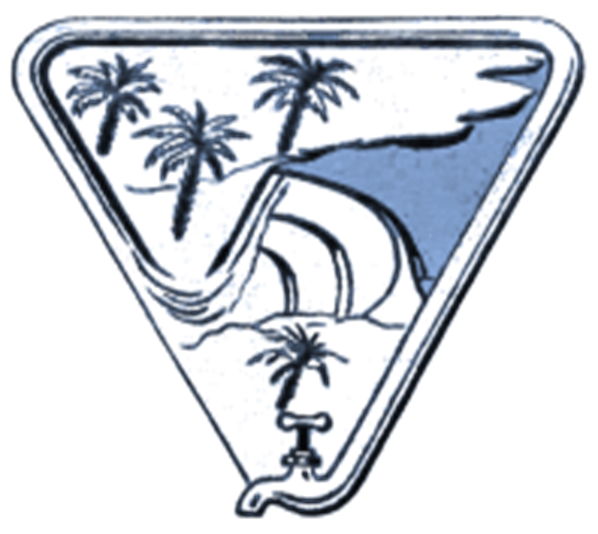Public Financial Management: Stealing in the Justice System
This article will cover stealing committed by officers working in the Anti-Corruption Commission (ACC) and the Ministry of Justice of Sierra Leone. While most Sierra Leoneans expect ACC and the Ministry of Justice to decide the fate of fraud cases, theft and other cases, these two bodies were themselves victims of fraud as reported in the last audit report.
The audit of public account should be conducted annually by the Auditors General department as required by Section 119 (2) of the 1991 constitution to audit all public offices, including the courts, the accounts of central and local government administrations, universities and public institutions or any other body established by an Act of Parliament. However, the Auditors General department failed to carry out its mandate to audit all of the above in their last audit report. This is a major weakness and this author hopes that the next audit will cover every institution that fall under Section 119 (2) mandate.
The following Public Enterprises and Commissions were not covered in the last audit report:
1. College of Medicine and Allied Health Sciences 2. Eastern Polytechnique- Kenema 3. Legal Service Commission 4. Milton Margai College of Education 5. Mining and General Services Company Ltd 6. National Assets Commission 7. “ Commission for Democracy 8. “ “ “ Social Action 9. “ “ “ Human Rights 10. “ “ “ War Affected Children 11. “ “ “ Technical, Vocational and Other Academic Awards. 12. “ Electoral Commission 13 “ Hotel and Tourist Board 14. “ Policy Advisory Committee 15 “ Power Authority 16. “ Public Procurement Authority 17. “ Security Office 18. “ Shipping Company 19. Njala University College 20. Ombudsman 21. Political Parties Registration Commission 22. Sierra Leone Housing Corporation 23. Sierra Leone Law School 24. Sierra Leone Postal Services 26. Sierra Leone Road Transport Corporation 27. Sierra Leone Scouts Association 28. Sierra Leone Telecommunications Company Ltd 29. Sierra Leone Water Company 30. Sierra National Airlines 31. Statistics Sierra Leone 32. University Court 33. University of Sierra Leone (IPAM, FBC, COMAHS, and University Secretariat)In Sierra Leone there is high motivation for theft or embezzlement because of the salary structure, poor internal controls and financial needs that motivates civil servants to perform illegal act. Although some of the financial need is based on greed and desperation to achieve wealth in a short period of time. However, it is easy to detect such change in life style; this can be the visible element of change in person’s life which can be observed by employers or fellow employees in the office.
Anti Corruption Commission (ACC)
ACC is the body created to fight corruption and in the last audit report it shows that they lacked proper controls to prevent fraud internally. The ACC did not recognize monies transferred into its Dollar account (USD) from DFID as revenue but only recognized it as income when monies were transferred from USD account to their Leone account.
The sums of $35,606, $5,078.32 and $1,672 were neither recognized as income in the Financial Statements nor did they form part of their bank balance. This was only revealed upon receipt of Standard Chartered Bank’s response to a bank confirmation letter. Foreign exchange differences and interest on this account were also not disclosed in the Financial Statements. Expenditure proposals with a total value of Le37M were approved for payment by the Commissioner but not authorized by the various Heads of Department which was an implicit requirement of the Commission’s financial and accounting procedures. The Commission received an “Intelligence Software” known as ‘I 2’ from DFID. Several anomalies were discovered which rendered it non-operational. Furthermore it was not brought to account by the Commission. Control over fuel usage was weak. The celebration of the International Anti-Corruption Day was fraught with anomalies.
The Commission also wasted Le 24,502,500 on rent for their Makeni Regional office but failed to occupy it during the period as stated in the audit report.
Ministry of Justice
The audit report shows that the Legal System is also plagued with corruption. Court officials are busy making themselves rich by not recording transactions and no proper authorization. According to various reports, the judicial system lack almost everything a judicial system needs to deliver justice efficiently, independently and impartially. Due to corruption in the Justice system, the judiciary is unable to ensure justice and is forced with backlog cases, poor salary structures and it is forced to operate from over crowded law court building in the centre of Freetown.
Extract of audit observation in the audit report
i) Judiciary High Court Treasury
Some Accountable Documents were not produced for inspection. The High Court failed to reconcile its Vote Service Ledgers with the Accountant-General’s Printout. Imprests, totalling Le46,420,000.00, were not supported by adequate documents. Salaries, amounting to Le41, 624,540.00, were paid to third parties without proper authority. Unclaimed salaries, totalling Le2,101,675.00, had not been paid back into the Consolidated Revenue Fund. Examination of Client Deposit Account revealed a difference of Le211,303,511.43 between the Clients’ Cash Book and payments into bank as indicated in the Bank Statements. Receipts, totalling Le48,633,911.00, were neither entered in the Cash Book nor banked. There were also duplicated receipt numbers totalling Le 1,901,900.00. Revenue collected, totalling Le 72,104,826.52, alledged to have been paid into the bank was not credited in the Bank Statement.
ii) Appeal Court
Neither a Log Book nor an Operating Record was maintained to record fuel and oil bought for the sum of Le49,195,600. Consumption details were also not available for inspection. Various stores items, valued at Le54,144,000 and Le1,155,000 respectively, were neither taken on ledger charge nor issued in a proper manner. Payment Vouchers, totalling Le3,500,000.00, were not produced for inspection. There were inconsistent signatures on Salary Vouchers for the period under review in respect of 24 employees. The amount involved was Le21,053,714.00. An Inventory Ledger was not maintained. A Vehicle Log Book was not in operation. Fuel Chits were not produced for inspection to account for the receipt and issue of fuel, amounting to Le9,506,250.00. The Vote Service Ledger was not properly maintained. Salaries, amounting to Le335,409.00, were paid to third parties without proper authority.
iii) Supreme Court
Receipts in respect of stationery items purchased, totalling Le15,625,000, were not posted in the Allocated Stores Ledger, neither was the record of issues to the various officers maintained. Reconciliations were not carried out between the Accountant General’s Print-out and the Vote Service Ledger. As a result a difference of Le18,555,000.00, was observed between the Accountant General’s Print-out and the Vote Service Ledger. Payment Vouchers, totalling Le 20,339,050.00, were not produced for inspection. Salaries, amounting to Le303,132.00, were paid to third parties without proper authority. Unclaimed salaries, totalling Le316,433.00, had not been paid back into the Consolidated Revenue Fund. A Vehicle Log Book was not maintained. A Fuel Register and Chit Books were not maintained for inspection. As such, the receipt and issue of fuel, totalling Le55,420,350.00, were not documented. Payment Vouchers, totalling Le11,792,976.00, were not properly completed. There were inconsistent signatures on Salary Vouchers amount involved was Le829,925.
In Sierra Leone, civil servants will commit fraud in order to retaliate or to follow the footsteps of their superiors. As such these civil servants destroy ministry, department or agencies in which they are placed to govern and provide public goods and services. Certain civil servants will justify their destruction because they share their loots with other senior government officials or they are forced to carry out illegal activities to support their Political party.
By Dylan Sogie-Thomas, UK
Stay with Sierra Express Media, for your trusted place in news!
© 2010, https:. All rights reserved.






